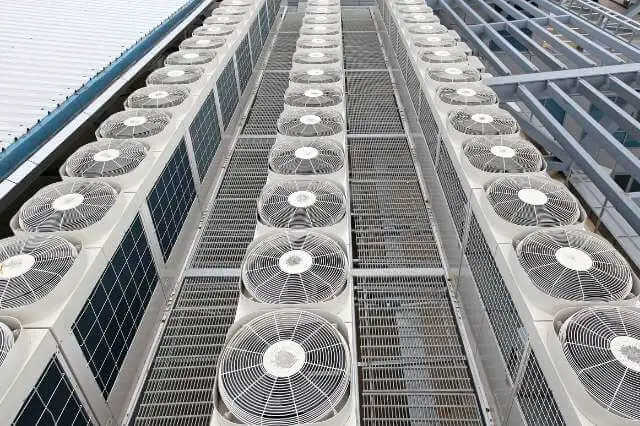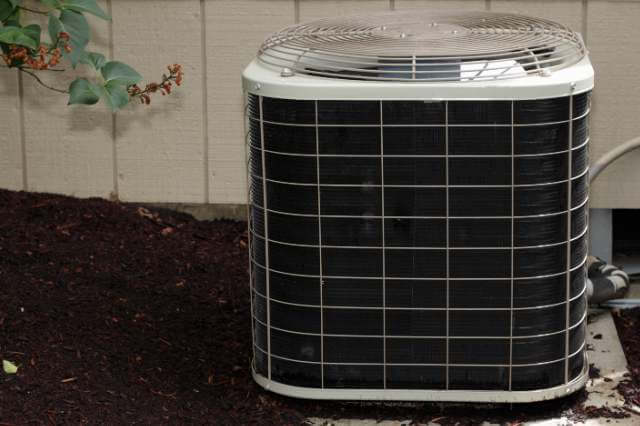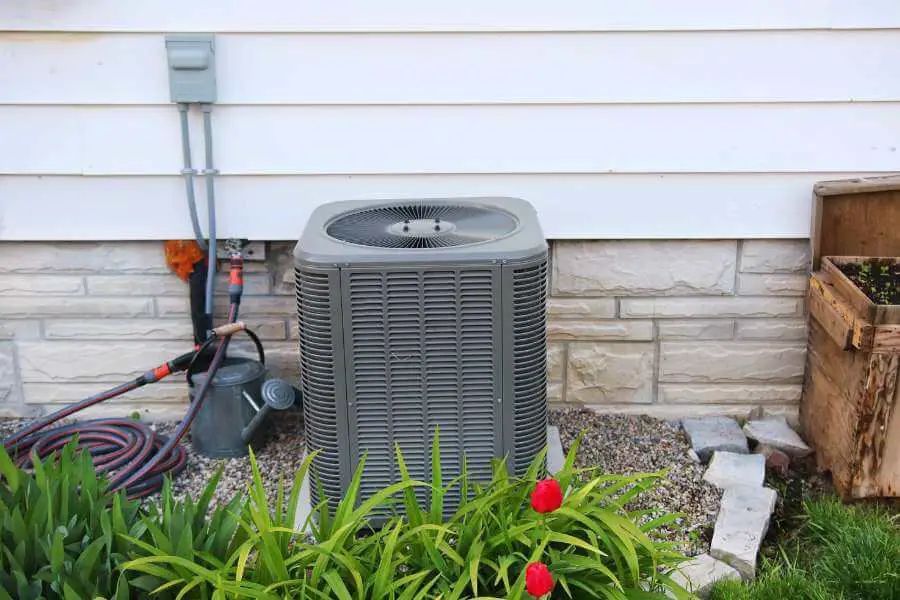Are you wondering whether central air conditioners use water and how much water should drain from them? If so, you’ve come to the right place.
In this article, we’ll discuss the ins and outs of central air conditioners and water, from whether they actually use water to why water comes from them.
We’ll also explore how much water an air conditioner uses, why they produce water in the first place, and how to put water in an air conditioner.
So read on to get the answers to all your questions about central air conditioners and water!
Table of Contents
Do Central Air Conditioners Use Water?
Residential air conditioners don’t. However, commercial units may use water to help with cooling.
Three types of air conditioners may use water: tube-within-a-tube, shell and coil, and shell and tube. Tube-within-a-tube is the most common type, and it’s also the most space-saving and cheapest to produce. This type of air conditioner uses a tube with a second tube inside, usually made out of copper.
The shell and coil type uses a copper coil with an outer shell housing hot gas refrigerant.
This type is also fairly space-saving and less expensive than the other types.
The shell and tube type uses a steel outer shell enclosing small copper tubing.
This type is usually used with cooling towers, and hot water is deflected away from the condensers.
It’s more expensive than the other types and not as space-saving.
So, although residential air conditioners don’t use water, commercial units may.
The type of air conditioner used will determine whether or not water is necessary.
How Much Water Should a Central Air Conditioner Drain?

The amount of water drains from a central air conditioner can vary greatly depending on how often the unit runs and how much moisture is in the air.
Central air conditioning systems remove humidity from your home by cooling and drying the air while also producing a steady drip of water.
Humidity is the amount of water vapor in the air, and evaporative coolers add moisture to the atmosphere through fans and water trickling over pads.
In extremely humid climates, central air conditioning systems may not be able to reduce the humidity level to a comfortable 40 to 50 percent.
The water that drains from the central air conditioner usually goes outside and not inside.
To keep the drain line from getting clogged, it’s important to check the overflow drain pan regularly.
You can also add a cup of chlorine bleach or household vinegar to the drain pan monthly to prevent algae from forming.
If the drain line does get clogged, use a wet/dry shop vacuum or condensate drain line pump to unclog it.
It’s important to note that the water from central air conditioners isn’t safe to drink. Still, it can water gardens after filtering or disinfecting them.
In summary, the amount of water drains from a central air conditioner can range from a few gallons a day to 20 gallons.
It’s important to check the overflow drain pan regularly and add a cup of chlorine bleach or household vinegar to it once a month.
If the drain line gets clogged, using a wet/dry shop vacuum or condensate drain line pump is best to unclog it.
Lastly, the water from central air conditioners isn’t safe to drink. Still, it can water gardens after filtering or disinfecting them.
Why Does an Air Conditioner Leak Water?
If you’ve ever noticed water coming out from your air conditioner, you might be wondering why that is.
There are a few explanations as to why this could be happening.
First, it could be due to a clogged drain pipe.
When the drain pipe is blocked, water can overflow from the indoor unit of your air conditioner.
If the pipe is blocked, you should check for any signs of blockage and clear it out as soon as possible.
Second, hot air coming into contact with part of the air conditioner that is below the dew point can cause condensation.
This is because the dew point is the temperature at which air turns into liquid and causes condensation on the surface of the air conditioner.
Third, low refrigerant levels can cause the cooling coil to freeze.
This will cause a buildup of ice on the coil, which can then lead to water leaking out from the air conditioner.
To fix this problem, you should call a professional to come and check the refrigerant levels of your air conditioner.
Fourth, low airflow can also lead to condensation.
This is usually caused by a dirty air filter or a blocked cooling coil.
To prevent this from happening, you should regularly clean or replace the air filter and make sure that the cooling coil is not blocked.
Finally, an improper installation can also cause water leaks from drain pipe joints or cracks.
Suppose you are installing your air conditioner yourself. In that case, it is important to make sure that it is done properly and that all of the connections are sealed properly.
If you have any doubts, call in a professional who can install it correctly.
These are the main reasons why water might be coming out of your air conditioner.
If you are having any issues with your air conditioner, it is always best to call in a professional to take a look and provide you with the best solution.
Why Do Air Conditioners Produce Water?

Have you ever wondered why an air conditioner produces water? It may seem strange at first, but the answer is actually quite simple.
Air conditioners cool air through refrigeration by using two sets of coils connected by a condenser.
The coils contain chemicals that evaporate and condense repeatedly, cooling the coils and removing moisture from the air.
As these chemicals evaporate, it produces water.
Some of the water produced runs out of the back of the air conditioner, while the rest evaporates to keep the coils cool.
But what if your air conditioner isn’t producing visible water? This could indicate a problem with the cooling system.
Clogged drain lines can cause water to collect inside, resulting in leaks.
Ice collection on the coils can also cause a puddle of water to appear beneath the air conditioner.
If you notice any of these issues, it’s important to have your air conditioner checked out by a professional as soon as possible.
So, in a nutshell, air conditioners produce water as a natural byproduct of their cooling process.
If you ever find water around your air conditioner, it’s best to have it checked out right away.
Doing so can help prevent further damage and keep your air conditioner running smoothly.
Final Thoughts
Overall, it’s important to understand that central air conditioners use water.
It may be less than other cooling systems, but it is still essential to keep your home cool and comfortable.
To ensure that your system is working correctly, it is important to keep an eye on the amount of water that is draining from your air conditioner.
If you find that the water level is too high, check the drain line and ensure it is not blocked.
If the issue persists, it may be best to call a professional to inspect your system.
